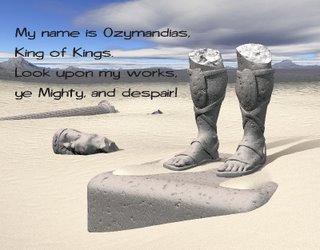Sonnet 55 is a poem about time and immortalization. The speaker claims that his beloved will wear out this world to the ending destiny. According to critics, the speaker’s poem won’t last much compared to his beloved, even though his beloved is immortalised in the poem.
The sonnet traces the progression of time, from the physical endeavours built by man such as tombstones, effigies, stonework, as well as the basic notion of conflict to the concept of the Last Judgment. The young man will survive all of these things through the verses of the speaker.
Critics debate that Shakespeare’s sudden increase of pride in his poetry was sternly artificial, a transparent attempt to mimic the style of the classical poets. It is hard on any other theory to reconcile the exaggerated self-importance of such a one as sonnet 55 with the expressions of humility found in the sonnets themselves.
The syntax of line 13, “So, till the judgment that yourself arise” is confusing. Paraphrased, the line says, “Until the Judgment Day when you arise.” The poet guarantees the youth that his splendour will remain immortal as long as one single person still lives to read these sonnets, which themselves will be immortal. Shakespeare seeks to build a rhetorical monument to his beloved, the fair lord. Nevertheless, the fair lord is not described or revealed in any way in this sonnet. In its place, the sonnet just addresses the idea of immortality through verse.
The sonnet revolves around the keyword “live.” In first stanza, the focus is the word outlive. In second stanza the focus is on the word living, whereas in stanza 3 it is on the word oblivious. The couplet focuses on the word live itself. Nevertheless, this raises the question of whether the young man actually continues to live bodily or if only his memory remains. There are mentions to being alive physically with lively phrases like “you shall shine in these contents” and “’gainst death and all oblivious enmity shall you pace forth,” and also to living in memory: “the living record of your memory”and“your praise shall…find room…in the eyes of all posterity.” This question is answered by the rhyme when it assigns real living to the day of the Last Judgment.
The poem is rich in poetic devices. Shakespeare spreads the irony by stacking his small fragile sonnet against the stone art of dead rich guys. There are two pairs of alliteration – “Marble” and “monuments” bring the rich-sounding M’s in line 1; the P sounds of “princes” and “powerful” pop out in line 2. The lines 5 and 6 ramps up the imagery from things getting ruined by time to total destruction by war. Again we can notice the 3-word W-alliteration on “when wasteful war,” followed by a 2-word S-alliteration on “shallstatues”. In lines 7 and 8 Shakespeare gave us an internal rhyme: “Mars” and “wars”. Shakespearean sonnets rhyme ABAB CDCD EFEF GG, which means that the final two lines rhyme with each other as a couplet, giving everything a nice wrapped-up-with-a-bow feel.
About: William Shakespeare was an English poet, playwright, and actor, widely regarded as the greatest writer in the English language and the world’s pre-eminent dramatist. He is often called England’s national poet, and the “Bard of Avon”.His extant works, including collaborations, consist of approximately 38 plays, 154 sonnets, two long narrative poems, and a few other verses, some of uncertain authorship. His plays have been translated into every major living language and are performed more often than those of any other playwright.
Shakespeare was born and brought up in Stratford-upon-Avon, Warwickshire. At the age of 18, he married Anne Hathaway, with whom he had three children: Susanna, and twins Hamnet and Judith. Sometime between 1585 and 1592, he began a successful career in London as an actor, writer, and part-owner of a playing company called the Lord Chamberlain’s Men, later known as the King’s Men. He appears to have retired to Stratford around 1613, at age 49, where he died three years later. Few records of Shakespeare’s private life survive, which has stimulated considerable speculation about such matters as his physical appearance, sexuality, and religious beliefs, and whether the works attributed to him were written by others.
Suggested Reading: Not Marble Nor the Gilded Monuments Summary by William Shakespeare in Hindi
Some online learning platforms provide certifications, while others are designed to simply grow your skills in your personal and professional life. Including Masterclass and Coursera, here are our recommendations for the best online learning platforms you can sign up for today.
The 7 Best Online Learning Platforms of 2022
- Best Overall: Coursera
- Best for Niche Topics: Udemy
- Best for Creative Fields: Skillshare
- Best for Celebrity Lessons: MasterClass
- Best for STEM: EdX
- Best for Career Building: Udacity
- Best for Data Learning: Pluralsight
















